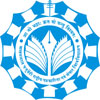Criteria Wise Summary:
Curricular Aspects:
- Curriculum Design & Development:
- Curriculum planning and implementation:
- Academic Flexibility:
- Curriculum Enrichment:
- Feedback system:
Teaching-learning and Evaluation:
- Catering to student diversity:
- Teaching learning process:
- Teacher profile and quality:
- Evaluation process and Reforms:
- Student Performance and Learning Outcomes:
- Student Satisfaction Survey:
Research, Innovations and Extension:
- Promotion of Research And Facilities:
- Resource Mobilization for Research:
- Innovation Eco System:
- Research Publications and Awards:
- Consultancy:
- Extension Activities:
- MOUs:
Infrastructure and Learning Resources:
- Physical Facilities:
- Library as a learning resource:
- IT Infrastructure:
- Maintenance of campus:
- Other facilities:
Student Support Progression:
- Student support:
Students Progression:
Students participation and activities:
Alumni Engagements:
Governance, Leadership and Management:
The university strictly follows the ordinance and provisions of University ACT, UGC/AICTE regulations and State Government Rules and Regulations. The organizational structure helps in day to day functioning of the University.
Institutional vision and leadership:
The mission and vision statement of the university provides guidelines to the institution. The leadership follows a democratic system in accordance with guidelines and aim to create ethical leaders with moral values.
Strategy Development and Deployment:
University has various bodies for governance through development of policies, regulations & guidelines, their implementation for continuous improvement. University regulations are the instruments through which all the academic, research & administrative activities are administered & monitored for effective Implementation, thus ensuring quality & continuous improvement at the University level. The Strategic Plan and Deployment and Decisions Taken by Committees adoption reflects decentralization of the decision making and participative management of the University with respect to research, training and extension activities in the University. The university follows the strategy based on our research and infrastructure. Strategic plan mentions the goals in order to develop the required facilities.
Faculty Empowerment strategies:
The university has well defined effective performance monitoring systems. Promotional avenues, welfare measures in order to promote research.
Financial Management and Resource Mobilization:
The university strictly follows the policy related to mobilization and utilization of funds. For this, there is a systematic plan that has been framed and approve by the management. The Finance Committee of University monitors financial activities and ensures the financial transactions are made as per finance rules. University also conducts the internal and the external audits for identifying discrepancy in financial transactions and suggests solutions and remedies for discrepancy in financial transactions.
Internal Quality Assurance Cell:
University has established IQAC cell as per UGC Guidelines. It is working on National/International Quality Standards of Education & suggestions received from academic leaders, and stakeholders. IQAC cell continuously monitors the quality and develops strategic plan for academic and Research excellence.
Institutional Values and Best Practices:
University is committed towards value based education for the holistic development of students. The university has variety of practices for excellence in academic pursuits and social development.
Institutional Values and Social Responsibilities:
The university prepared a systematic plan and strictly follows the gender equity plan. University has Solar Energy based system as sufficient sources of alternative energy. University has well defined waste management systems for solid waste, Liquid waste, biomedical waste and e-waste. University regularly conducts audits like green-environment audit, energy audits as per policy University has policy for providing barrier free environment to divyangjan. University celebrates various national & international commemorative days, festivals, for inculcating human values among students. The university strictly follows and maintains discipline and code of conduct through various guidelines for students and staffs. Through these activities, University administration ensures their commitment towards the society.
Best Practices:
University is working with obligations and accountability of their values and duties on the Inclusive Community Engagement and Bridging the Digital Divide in Rural Education as best practices of University.
Best Practice 1: Harmony Hub: A Tapestry of Inclusive Community Engagement through Radio, NSS, NCC, and Beyond
“Harmony Waves” encapsulates the multifaceted approach of Makhanlal University towards community engagement. It recognizes the synergistic potential of Community Radio, NSS, NCC, and various other initiatives in creating a positive ripple effect that extends beyond institutional boundaries. The institution integrates various elements, including Radio Karmveer, NSS, NCC, and other community engagement practices under the umbrella of “Harmony Waves.” This initiative weaves together a diverse tapestry of programming, services, and activities that actively involve students, faculty, and community members, fostering a sense of unity and shared purpose.
University Radio Karmveer has developed dedicated farmer-related programs providing agricultural insights, market trends, and expert advice. It includes the facilitating farmer-centric discussions, addressing challenges, and promoting sustainable agricultural practices.
Best Practice 2: “Beyond Borders – Bridging the Digital Divide in Rural Education”
University recognizes the digital disparities in rural education. “Beyond Borders” emerges as a best practice to bring education to the doorsteps of those residing in remote areas, emphasizing the institution’s commitment to democratizing education.
